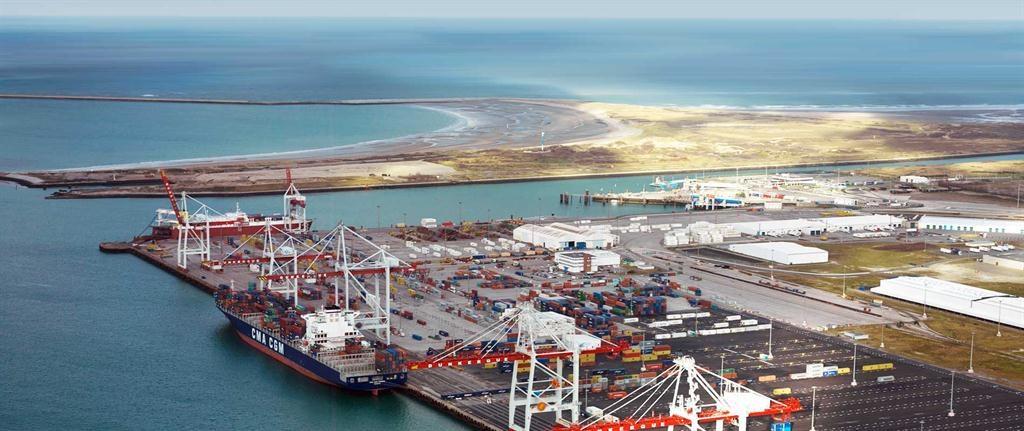Transnet crisis: Imports, exports affected
According to reports in South African media, ships diverted to harbours in Maputo and Beira in Mozambique, and Walvis Bay.
RONELLE RADEMEYER
WALVIS BAY
Sabotage on Transnet in South Africa has incapacitated the import and export of goods via shipping between Namibia and that country.
These goods will now have to be transported via road, which is much more expensive, Elias Mwenyo, the manager of business development at Namport in Walvis Bay, said.
He was responding to questions on the impact of the cyberattack on Transnet’s security systems last Thursday.
The company was forced to declare a force majeure – a forced stoppage of operations – at its cargo terminal, and ships en route to harbours in Cape Town, Durban, Gqeberha (formerly Port Elizabeth) or Ngqura (formerly East London) could not load or unload goods.
According to reports in South African media, these ships diverted to harbours in Maputo and Beira in Mozambique, and Walvis Bay.
For ships that anchored near Cape Town and decided to use the services of another harbour due to the attack, Mwenyo said it’s too soon for them to arrive at Walvis Bay.
Connected, for better and worse
“We are mutually connected to South African harbours, and what happens there affects us. It is possible that some of these ships will offload the cargo meant for South Africa at Walvis Bay and pick it up again en route along the African west coast,” he said.
“The ships can, of course, also sail past and visit West African harbours first.”
Mwenyo confirmed that some of the ships diverted from Durban to Maputo.
“Maputo is obviously closer to Durban than Walvis Bay is to Cape Town,” he said, but could not comment on how big the impact on imports and exports between Namibia and South Africa would be.
Meanwhile, Transnet yesterday begun to resume activities at harbours after cargo documents had to be processed manually this week to try to restart the supply chain.
Serious blow
Gavin Kelly, the CEO of the Road Freight Association (RFA) in South Africa, told News24 the cyberattack dealt harbours in that country a serious blow.
“The ships aren’t going to wait outside ports forever. They will sail on to other countries.
“You cannot bring a country’s trade to a standstill for a week without grave consequences,” he added.
Kelly said companies will now start seriously looking at harbours in other African countries to import goods.
- [email protected]
WALVIS BAY
Sabotage on Transnet in South Africa has incapacitated the import and export of goods via shipping between Namibia and that country.
These goods will now have to be transported via road, which is much more expensive, Elias Mwenyo, the manager of business development at Namport in Walvis Bay, said.
He was responding to questions on the impact of the cyberattack on Transnet’s security systems last Thursday.
The company was forced to declare a force majeure – a forced stoppage of operations – at its cargo terminal, and ships en route to harbours in Cape Town, Durban, Gqeberha (formerly Port Elizabeth) or Ngqura (formerly East London) could not load or unload goods.
According to reports in South African media, these ships diverted to harbours in Maputo and Beira in Mozambique, and Walvis Bay.
For ships that anchored near Cape Town and decided to use the services of another harbour due to the attack, Mwenyo said it’s too soon for them to arrive at Walvis Bay.
Connected, for better and worse
“We are mutually connected to South African harbours, and what happens there affects us. It is possible that some of these ships will offload the cargo meant for South Africa at Walvis Bay and pick it up again en route along the African west coast,” he said.
“The ships can, of course, also sail past and visit West African harbours first.”
Mwenyo confirmed that some of the ships diverted from Durban to Maputo.
“Maputo is obviously closer to Durban than Walvis Bay is to Cape Town,” he said, but could not comment on how big the impact on imports and exports between Namibia and South Africa would be.
Meanwhile, Transnet yesterday begun to resume activities at harbours after cargo documents had to be processed manually this week to try to restart the supply chain.
Serious blow
Gavin Kelly, the CEO of the Road Freight Association (RFA) in South Africa, told News24 the cyberattack dealt harbours in that country a serious blow.
“The ships aren’t going to wait outside ports forever. They will sail on to other countries.
“You cannot bring a country’s trade to a standstill for a week without grave consequences,” he added.
Kelly said companies will now start seriously looking at harbours in other African countries to import goods.
- [email protected]




Comments
Namibian Sun
No comments have been left on this article